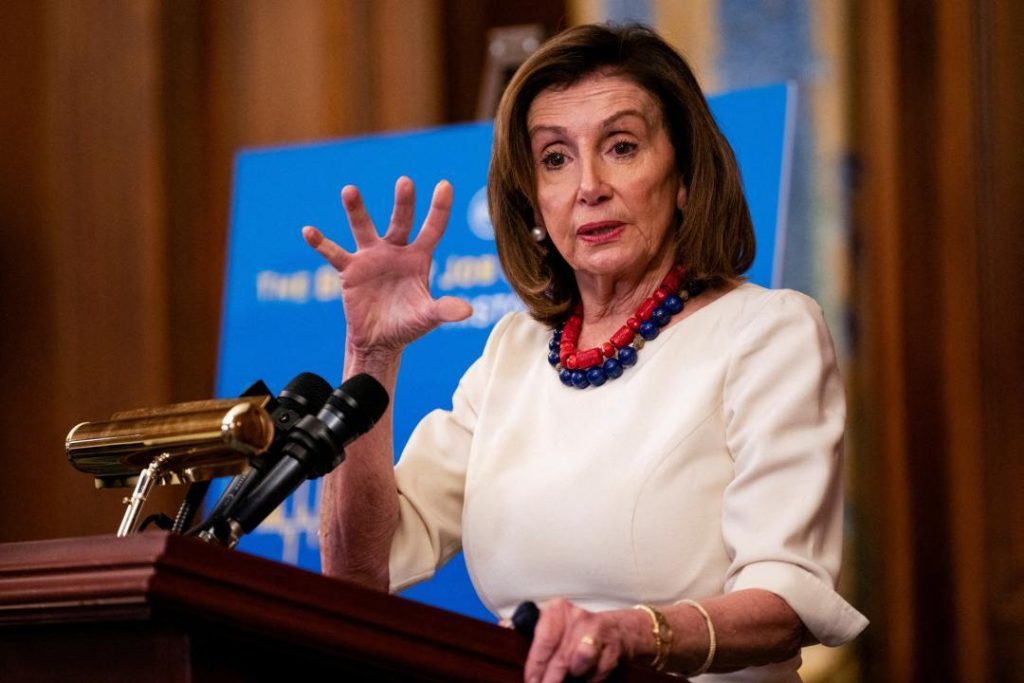
What is PELOSI Act & why is it named after former US Speaker Nancy Pelosi?
In the United States, corruption and conflicts of interest have been a long-standing issue in the political sphere. The recent scandals involving lawmakers and their stock market dealings have sparked outrage and calls for reform. In a bid to address this issue, US Senator Josh Hawley has reintroduced the Preventing Elected Leaders from Owning Securities and Investments (PELOSI) Act. The act aims to prohibit lawmakers and their spouses from holding or dealing in stocks while holding office. In this blog post, we’ll delve into the details of the PELOSI Act, its significance, and why it’s named after former US Speaker Nancy Pelosi.
What is the PELOSI Act?
The PELOSI Act is a proposed legislation that seeks to ban lawmakers and their spouses from owning or trading individual stocks while holding office. The act would allow lawmakers to invest in mutual funds (MFs), exchange-traded funds (ETFs), and Treasury bonds, which are considered to be less susceptible to insider trading and market manipulation.
The act is named after Nancy Pelosi, the former Speaker of the US House of Representatives, who has been criticized for her significant stock market gains during her tenure. According to reports, Pelosi and her husband, Paul Pelosi, have accumulated a vast fortune through their investments, with their net worth increasing by millions of dollars during her time in office.
Why is the PELOSI Act necessary?
The PELOSI Act is a response to the growing concerns about corruption and conflicts of interest in the US political system. Lawmakers have been accused of using their positions to influence policy decisions that benefit their own financial interests. The act aims to prevent this by eliminating the potential for lawmakers to profit from their public office.
The issue of lawmakers’ stock market dealings has been a long-standing one. In 2012, the Stop Trading on Congressional Knowledge (STOCK) Act was passed, which prohibited lawmakers and their staff from trading on non-public information. However, the act did not go far enough, and lawmakers continued to find loopholes to exploit.
The PELOSI Act is a step towards addressing this problem by prohibiting lawmakers from owning individual stocks. This would prevent them from using their position to influence market decisions or gain insider knowledge that could help them make profits.
Why is the act named after Nancy Pelosi?
The PELOSI Act is named after Nancy Pelosi because of her significant stock market gains during her tenure as Speaker of the House. Pelosi and her husband have accumulated a vast fortune through their investments, with their net worth increasing by millions of dollars during her time in office.
Pelosi has been criticized for her stock market dealings, with some accusing her of using her position to influence policy decisions that benefit her own financial interests. The PELOSI Act is a response to these concerns, and by naming the act after Pelosi, Senator Josh Hawley is highlighting the need for greater transparency and accountability in the political system.
What are the implications of the PELOSI Act?
If passed, the PELOSI Act would have significant implications for the US political system. It would:
- Increase transparency: By prohibiting lawmakers from owning individual stocks, the act would increase transparency and prevent them from using their position to influence market decisions.
- Prevent conflicts of interest: The act would prevent lawmakers from having conflicts of interest, as they would no longer be able to profit from their public office.
- Enhance accountability: The act would hold lawmakers accountable for their actions, as they would be required to disclose their financial interests and investments.
Conclusion
The PELOSI Act is a step towards addressing the growing concerns about corruption and conflicts of interest in the US political system. By prohibiting lawmakers from owning individual stocks, the act would prevent them from using their position to influence market decisions or gain insider knowledge that could help them make profits.
The act is named after Nancy Pelosi because of her significant stock market gains during her tenure as Speaker of the House. By highlighting the need for greater transparency and accountability, the PELOSI Act is a response to the growing concerns about corruption and conflicts of interest in the US political system.
Source:






